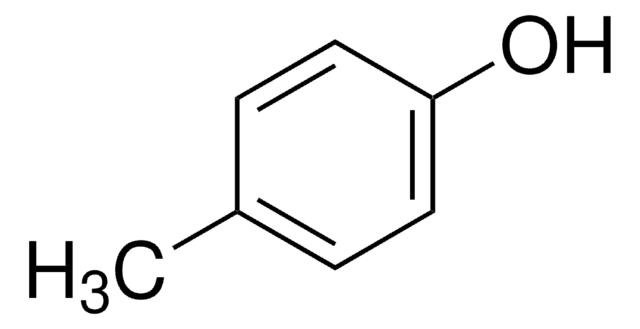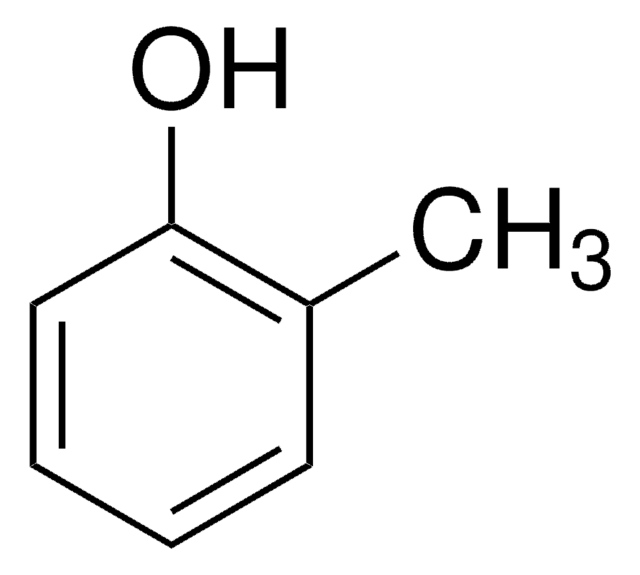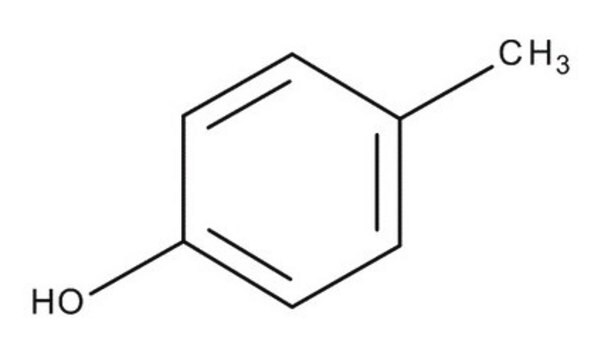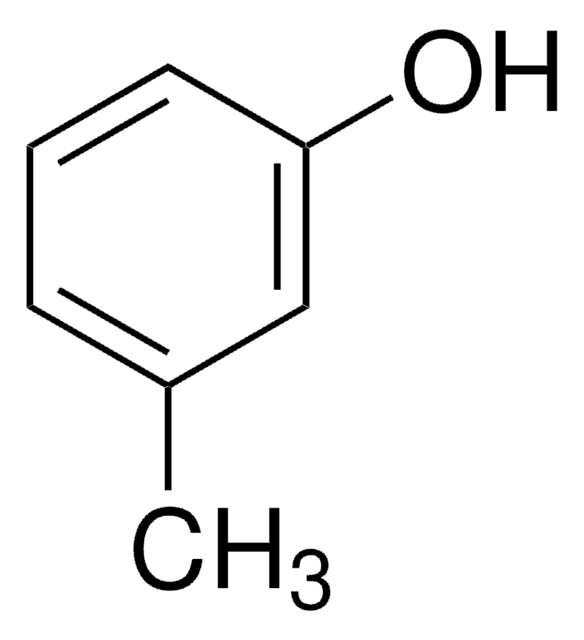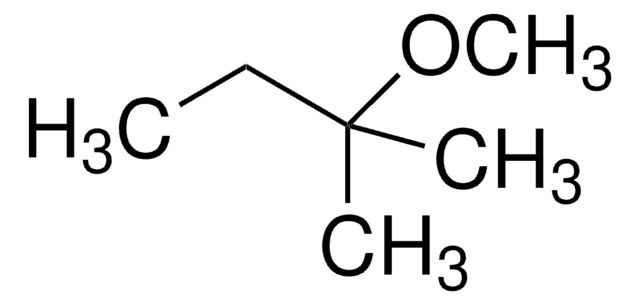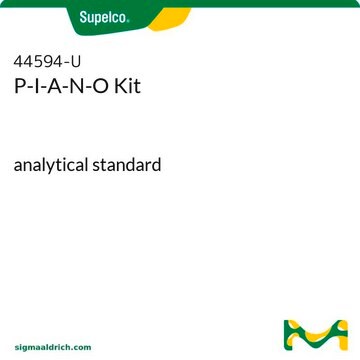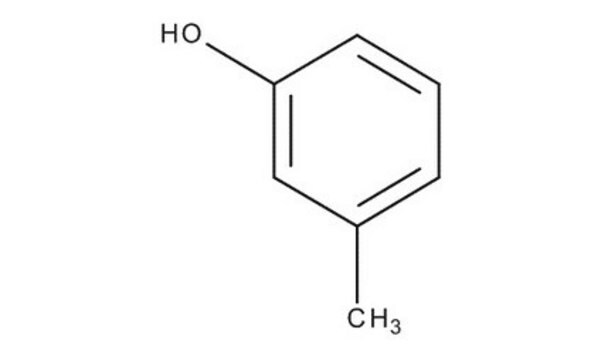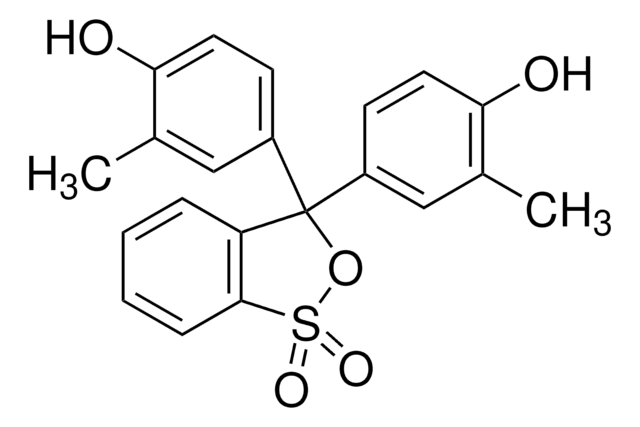03869
Cresol mixture of isomers
technical, crude, ~85% (sum of isomers, GC)
Synonym(s):
Methylphenol tricresol
About This Item
Recommended Products
grade
technical
Quality Level
Assay
~85% (sum of isomers, GC)
form
liquid
quality
crude
impurities
≤8% phenol (GC)
SMILES string
Cc1ccc(O)cc1.Cc2cccc(O)c2.Cc3ccccc3O
InChI
1S/3C7H8O/c1-6-2-4-7(8)5-3-6;1-6-3-2-4-7(8)5-6;1-6-4-2-3-5-7(6)8/h3*2-5,8H,1H3
InChI key
QTWJRLJHJPIABL-UHFFFAOYSA-N
Looking for similar products? Visit Product Comparison Guide
Application
- Separation of cresols using coelectroosmotic capillary electrophoresis.: This research explores the separation of cresol isomers using coelectroosmotic capillary electrophoresis. The study demonstrates an efficient method for analyzing cresol mixtures, which is valuable in both industrial and pharmaceutical applications where precise separation of isomers is critical (Masselter et al., 1993).
Signal Word
Danger
Hazard Statements
Precautionary Statements
Hazard Classifications
Acute Tox. 3 Dermal - Acute Tox. 3 Oral - Aquatic Chronic 3 - Eye Dam. 1 - Muta. 2 - Skin Corr. 1B
Storage Class Code
6.1A - Combustible acute toxic Cat. 1 and 2 / very toxic hazardous materials
WGK
WGK 2
Flash Point(F)
176.0 °F - closed cup
Flash Point(C)
80 °C - closed cup
Personal Protective Equipment
Regulatory Listings
Regulatory Listings are mainly provided for chemical products. Only limited information can be provided here for non-chemical products. No entry means none of the components are listed. It is the user’s obligation to ensure the safe and legal use of the product.
PDSCL
Deleterious substance
PRTR
Class I Designated Chemical Substances
FSL
Group 4: Flammable liquids
Type 3 petroleums
Hazardous rank III
Water insoluble liquid
ISHL Indicated Name
Substances Subject to be Indicated Names
ISHL Notified Names
Substances Subject to be Notified Names
JAN Code
03869-1L:
03869-BULK:
03869-250ML:
03869-VAR:
Choose from one of the most recent versions:
Already Own This Product?
Find documentation for the products that you have recently purchased in the Document Library.
Customers Also Viewed
Our team of scientists has experience in all areas of research including Life Science, Material Science, Chemical Synthesis, Chromatography, Analytical and many others.
Contact Technical Service